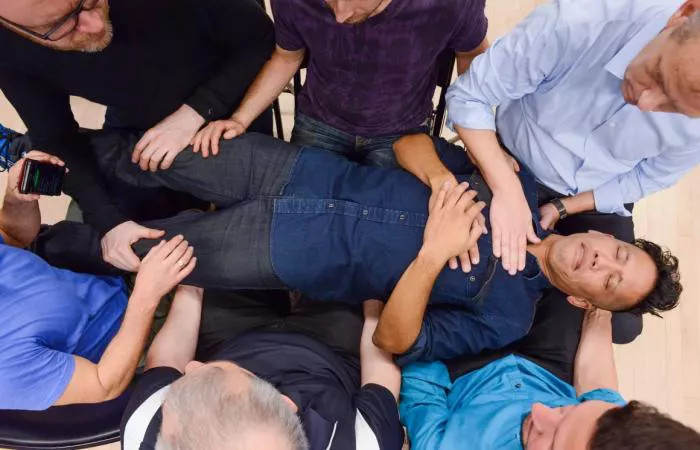Tyrone Marsh, a 40-something married father of two, lived an outwardly social life in New York. Yet despite his extroverted nature, he felt a void. Conversations with other men rarely moved beyond sports or dating, leaving him craving deeper connections.
In 2018, Marsh stumbled upon The ManKind Project, an organization offering men’s retreats and structured support groups. At his first men’s circle—a space where men gather to share openly—he found what he’d been missing: a judgment-free zone to explore his thoughts and emotions.
“I can fumble through my feelings, and these men hold space for me,” Marsh says. “I don’t feel judged.” His experience highlights a growing crisis among men: Despite rising loneliness across genders, men struggle disproportionately to form meaningful friendships. Isolation fuels risks like depression, misogynist radicalization, and strained relationships.
A Counter to the “Manosphere”
As toxic corners of the internet peddle hyper-masculinity, men’s circles offer an alternative. Groups like The ManKind Project and the UK-based Men’s Circle emphasize vulnerability, mutual support, and emotional growth.
Pasco Ashton, co-founder of Men’s Circle, launched his organization after losing two friends to suicide. “Men lack the tools for emotional connection,” he says. His group’s surveys show participants gain self-awareness, better relationships, and coping skills.
Breaking Generational Patterns
For Marsh, raised in a tough Nashville household where emotions were suppressed, these circles rewired his approach to fatherhood. His son, Kapila, 20, recalls a shift: “Dad started asking why I felt things, not just how to fix them.”
Yet challenges persist. Some groups inadvertently reinforce stereotypes by framing masculinity through rigid archetypes (e.g., “warrior” or “lover”). Developmental psychologist Angelica Ferrara notes, “The best circles name patriarchy as the root of men’s suffering—not something to revive.”
The Youth Gap
The movement’s biggest hurdle? Engaging younger men. Amid influencers glorifying extreme self-reliance, circles struggle to appeal to Gen Z and millennials. The ManKind Project’s $995 retreat for men 18–35 sees limited uptake.
Rick Fortier, 63, a longtime circle participant, laments the disconnect: “Younger guys come to talk sports, but when we dig deeper, they don’t return.”
The Path Forward
Despite flaws, experts agree these spaces are a step toward healthier masculinity. As Ferrara puts it, “Men building emotional intelligence benefits everyone.” For Marsh and Fortier, the work is urgent.
“We created this crisis,” Fortier says. “It’s on us to fix it.”
Related topics:

